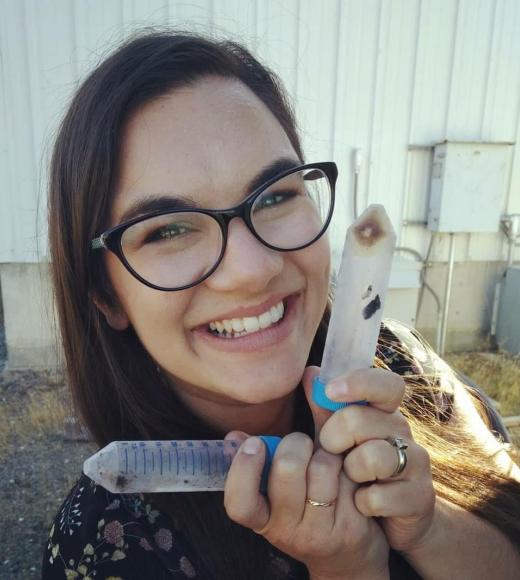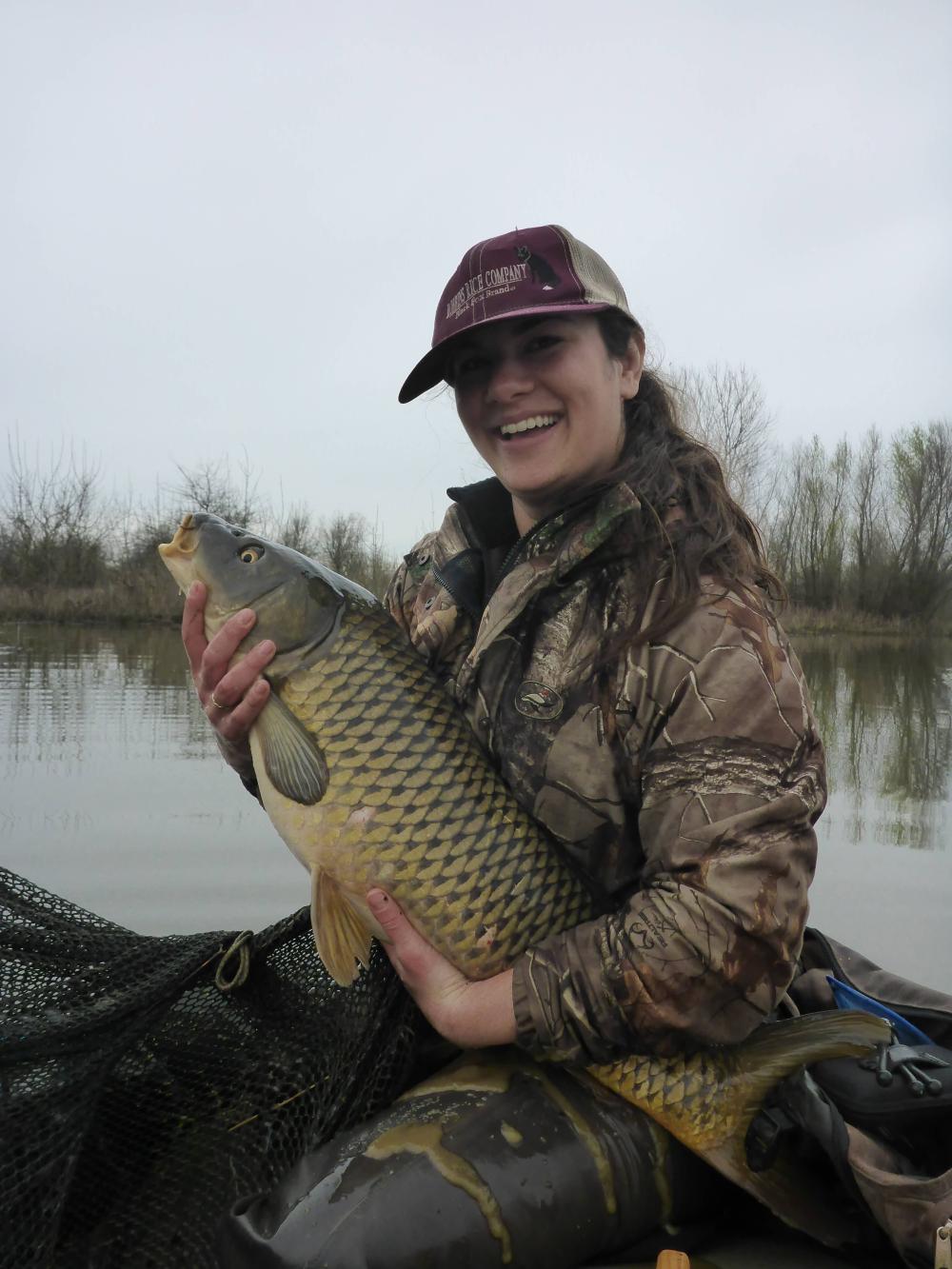
Position Title
Deputy Director
Miranda Bell-Tilcock is the Deputy Director of the Center for Watershed Sciences (CWS) where she supports research and operations related to watershed sciences while maintaining the goals of the strategic plan. Miranda's connection with the CWS spans over 10 years starting in 2012 as an undergraduate intern where she barely left the lab and never talked to anyone, to working as a Junior Specialist in 2014 (and talked to everyone), graduate student in 2017, TA’ing the Ecogeomorophology class in 2018, and finally assistant/associate specialist in the Johnson-Jeffres Lab from 2019-2023, where mentoring students and early career researchers became the best part of her job in the lab.
While working at CWS, Miranda’s research focused on reconstructing the life history of fish using isotopes and fish eyes. The highlight of her career (so far!) was when this work was featured on Science Friday with NPR as well as any opportunity to contribute to the Waterblog. Miranda left CWS in 2023 to accept a Senior Environmental Scientist position at the Delta Stewardship Council where she was the lead in planning the Bay Delta Science Conference and worked with the National Center for Ecological Analysis and Synthesis (NCEAS) to help provide high quality synthesis training for those that work in the Bay-Delta before returning to CWS as Deputy Director in 2025.
Outside of work, Miranda volunteers with the California Nevada Chapter of the American Fisheries Society (Cal-Neva AFS) where she has served for the past 3 years (2022- 2025) as President of the chapter. With Cal-Neva AFS, she strives to engage and build the fisheries community through planning conferences as well as other events that bring fisheries professionals together. Working with Cal-Neva AFS has provided Miranda with numerous leadership opportunities and built connections that she would haven’t had otherwise. Currently, she hosts a monthly webinar online with the organization that covers a wide variety of topics such as the importance of diversity in fisheries, Great White Shark research, finding meaning in early career science, learning to draw science illustrations, and so much more.
When not working on all things fisheries either through volunteering or at CWS, Miranda enjoys spending time with her husband and three children, baking, taking the kids on road trips and camping, as well as visiting friends, family, and cheering on her home teams in Kansas City, MO whenever possible.

- Wetlands
- Stable Isotopes
- Salmon
- Food Webs
